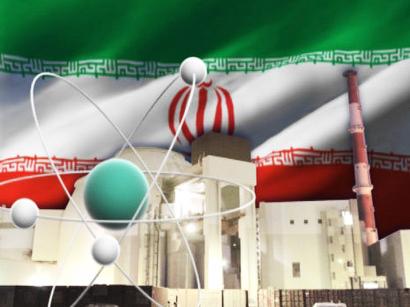Six world powers and Iran are unlikely to reach a framework agreement on Iran's nuclear program in the coming days as the sides are too far apart on many issues, a European negotiator said on Thursday, Reuters reported.
He blamed Tehran for failing to compromise.
"Contrary to what the Iranians are saying with regard to 90 percent of an accord being done, that's not true," the negotiator told reporters on condition of anonymity.
"We are not close to an agreement."
The current round of talks in Switzerland may need to continue beyond Friday.
"We are pretty far away. There are a lot of issues that still need to be resolved. The Iranians must make substantial concessions," he said.
Iranian Atomic Energy Organization chief Ali Akbar Salehi told reporters on Tuesday that an accord was 90 percent agreed and only one issue was unresolved in talks aimed at reaching a historic nuclear deal with Iran.
Iranian Deputy Foreign Minister Hamid Baidinejad confirmed that there were a number of sticking points.
"Contrary to what many think, that we are only discussing one issue, it is not correct," he told reporters. "We are discussing many issues and nothing is agreed until everything is agreed."
He cited research and development (R&D) into centrifuges as a sticking point.
"We are still discussing R&D along with other issues, technical and political issues," he said.
U.S. and European officials worry that Iranian research into more advanced centrifuges - machines that purify uranium for use as fuel for reactors or, if very highly enriched, in bombs - could give it the capability to quickly produce an atomic arsenal. Tehran denies harboring any such ambitions.
The European negotiator said that if Iran does not give in on this issue, there will be no nuclear deal at all.
"Research and development currently has become the most critical and difficult issue, and there won't be an accord if the Iranians don't back down," he said.
Western officials said the duration of a deal was also an unresolved point.
U.S. President Barack Obama told Reuters in an interview on March 2 that Iran would have to accept limits on its nuclear activities for at least 10 years under any deal.
France is pushing for at least 15 years for the agreement, the European negotiator said. Western officials said the United States was also pushing for restrictions on sensitive nuclear work by Tehran to be in place for more than a decade.
The United States has been calling for a written framework agreement to be signed by the end of March, in order to allow negotiators to fill in all the technical details by the end of June. But Iran has rejected the idea of a written interim deal before a final deal by June 30.
Baidinejad said that if there was a framework agreement this month, it would not be in writing.
"There will be no written agreement," he said. "It will be kind of verbal agreement that will pave the ground for further talks."






